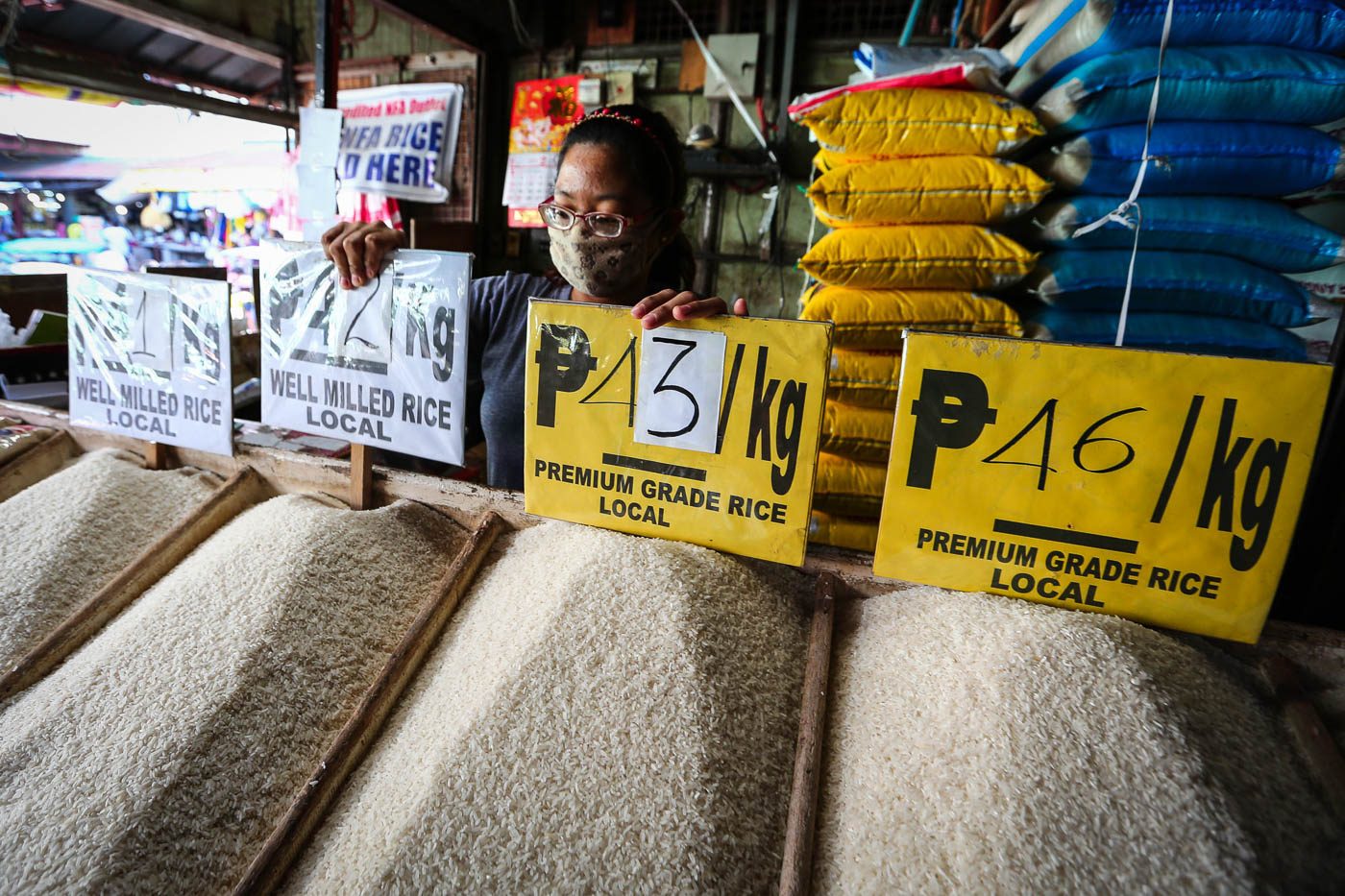SUMMARY
This is AI generated summarization, which may have errors. For context, always refer to the full article.

MANILA, Philippines – There may be no need for the existing suggested retail prices (SRPs) for rice as the Department of Trade and Industry (DTI) observed that prices in some areas have already gone down.
Trade Secretary Ramon Lopez on Monday, April 29, said that based on DTI monitoring, rice prices now range from P34 per kilogram (kg) to P39 per kg. In some areas, it is as low as P32 per kg.
Rice prices went up in 2018, amid the increasing inflation and dropping National Food Authority stocks. (READ: Consumer advocate proposes lowering SRPs for rice)
Last October, the government implemented an SRP of P44 per kg for well-milled local rice, and an SRP of P39 per kg for regular milled rice. Local premium rice also has an SRP of P47 per kg.
“We saw the prices now and we think that this is the right range…and we’re hoping that it goes even lower,” Lopez said in a mix of Filipino and English.
Removing the SRPs for rice, however, will still depend on the Department of Agriculture, Lopez added.
As of the 5th week of April, the Philippine Statistics Authority said that the average retail price for regular milled rice was at P39.91 per kg, while the average retail price for well-milled rice was at P44.07 per kg.
Agriculture Undersecretary for Operations Ariel Cayanan also said in a press briefing on Monday that by increasing the productivity of rice farmers through the Rice Competitiveness and Enhancement Fund, the cost of producing rice will go down.
This scenario would allow traders to still sell rice at lower prices while maintaining a profit.
Lopez also said they expect “natural control” in the market after the passage of Republic Act No. 11203 or the rice tariffication law, which allows unimpeded rice imports.
“The government will simply monitor because the private sector will determine if they are importing the right quantity and if they can sell it at a profit as well,” he added in a mix of English and Filipino.
“Of course, if there are a lot importing rice…there will be more competition and we can see what’s the cheapest price they can offer while still profiting.” – Rappler.com
Add a comment
How does this make you feel?
There are no comments yet. Add your comment to start the conversation.